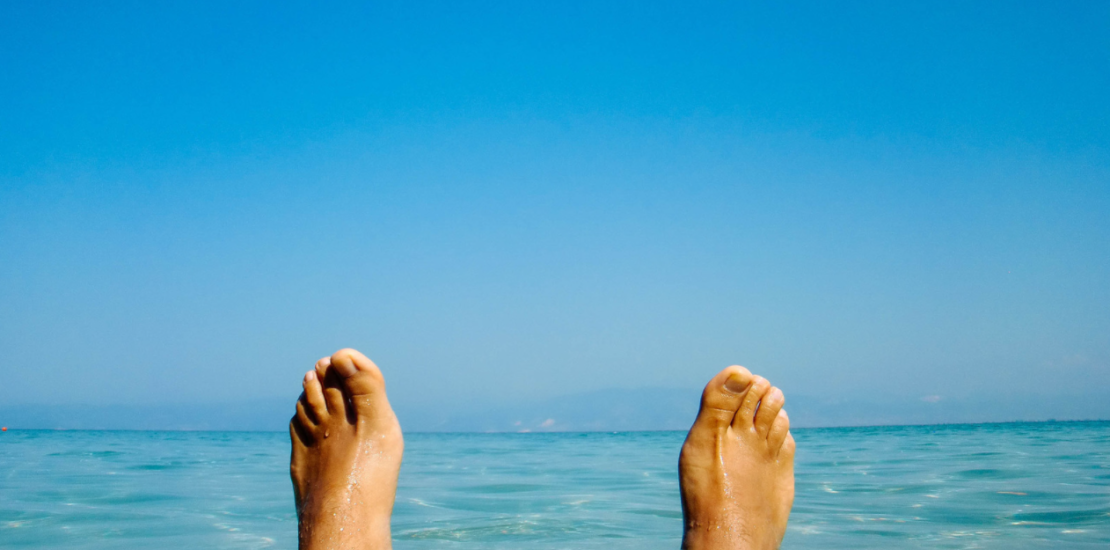- August 31, 2023
- Posted by: swimlyadn1m
- Category: Swimly Blog

When we sink in water, it is because the tension in our body prevents us from floating. This is because water is denser than air, so it pushes down on us more. The tenser we are, the more difficult it is for us to float.
Does my Fear of Water make it worse?
A fear of water can be related to the feeling of sinking. When we are scared, our muscles tense up and the body starts to slowly go down. This starts a chain reaction with our brain realising we are sinking and acting accordingly with a flight or fight response. Although this may sound counterproductive, the only way to stop this from happening is to relax. This concept is so important!
What is the difference between floating and sinking?
One of the World’s greatest mathematicians, Archimedes of Syracuse proved the law of buoyancy. The Archimedes principle can be used to explain why some objects float and others sink. The principle states that the buoyant force on an object is equal to the weight of the fluid displaced by the object. In other words, the more water an object displaces, the more likely it is to float.
This explains why boats float even though they are made of heavy materials like metal or wood. It also explains why a lead sinker sinks while a cork floats. The lead sinker displaces less water than the cork, so it has less buoyancy. The density of an object can be affected by its temperature.
Colder objects are usually denser than warmer objects. This is why ice floats in water. As the ice melts, it becomes less dense and starts to sink. It is also harder to float if we are wearing heavy clothing or if we have a lot of body fat. This is because the more matter there is in our body, the more it is affected by gravity forces pushing us down.
Does Gravity play a part?
While gravity affects everything on Earth, its effects in water are slightly altered due to the buoyancy of water. For example, while we may feel heavier and more dragged down by gravity on land, the gravity in water acts more like a force pushing us up towards the surface. This is because the density of water is much greater than that of air, so gravity has a harder time pulling us down through it.
Similarly, the gravity on the moon is much weaker than the gravity on Earth. This is because the moon is much further from the center of the Earth than we are. The gravity in water is also weaker than the gravity in air. This is because the water is closer to the center of the Earth than the air is. Overall, gravity affects us in water and on land in different ways due to the differences in density between these two environments. Whether we are trying to float or sink, gravity will play an important role in determining our success.
5 things to help you float!
Fortunately, there are ways to combat this fear and increase buoyancy.
1. The most effective method is to relax your body and mind. This can be done by taking slow, deep breaths and focusing on releasing the tension in your body.
2. It is also helpful to visualize yourself floating on the water. When you start to float, close your eyes and imagine you are sleeping.
3. Try spreading your arms and legs out as much as possible. This will increase your surface area and make it easier to float.
4. Tucking your knees into your chest or rolling onto your back. These positions will help to increase the amount of air in your body, which will make it easier to float.
5. Finally, remember that practice makes perfect. The more you float, the easier it will become.
Conclusion
Now that you understand how and why things float or sink, you can start to put this knowledge to practical use. You might find yourself using Archimedes’ principle in everyday situations, such as choosing the right swimsuit for a pool or beach day!
Whether you’re looking to float on top of the water or simply stay afloat, Swimly can help you achieve your goal. So don’t be afraid to jump in and understand more about this fascinating concept today!
Leave a Reply Cancel reply
Contact us at the Consulting WP office nearest to you or submit a business inquiry online.

